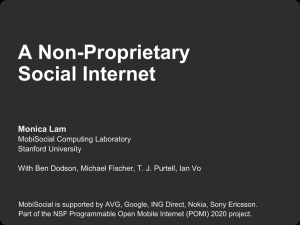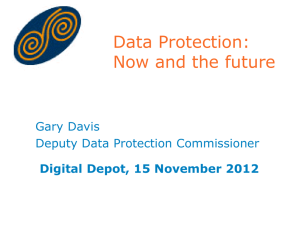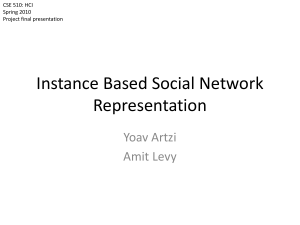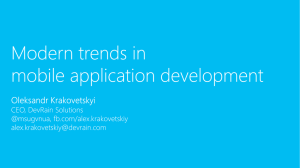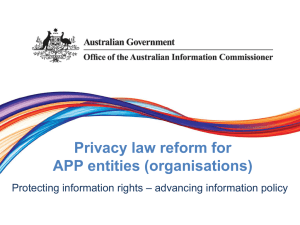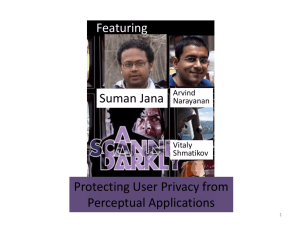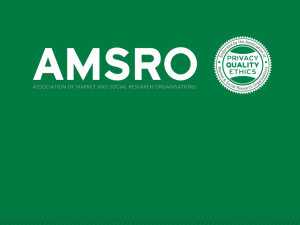Mobile - Data Management Lab
advertisement
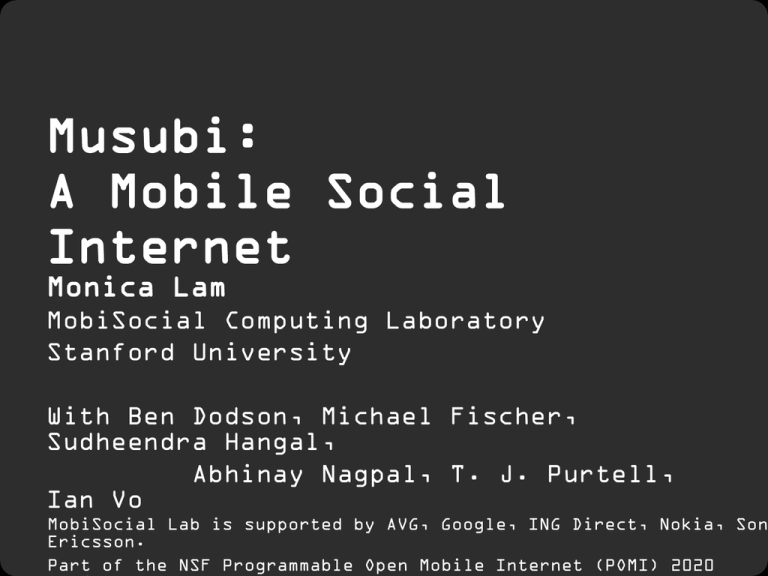
Musubi: A Mobile Social Internet Monica Lam MobiSocial Computing Laboratory Stanford University With Ben Dodson, Michael Fischer, Sudheendra Hangal, Abhinay Nagpal, T. J. Purtell, Ian Vo MobiSocial Lab is supported by AVG, Google, ING Direct, Nokia, Son Ericsson. Part of the NSF Programmable Open Mobile Internet (POMI) 2020 Social App Platform FB Android SDK Facebook Graph 800 Million Users Today’s Social Intranets Loss of privacy Today’s Social Intranets Loss of privacy Monopoly Today’s Social Intranets Loss of privacy Monopoly Loss of competition Zynga Dependency on Facebook wsj, 10-12-11 Vision: Social Intranet -> Internet No single owner of users’ data or app platform No need to join the same network Today Social Networking TCP/IP Global Social Graph TGCP: Disintermediation TGCP Trusted Group Communication Protocol Problem 1: Phones cannot talk to each other Encrypted messages based on public keys Social App Platform TCP/IP FB app Global Social Graph POSI: Phone-Based Open Social Interactions API POSI Social OS Trusted Group Communication Protocol Problem 2: Global social graph Decentralized graph Enable decentralized apps Friends = Address Book Contacts IBE (Identity-Based Encryption) High Level View Turn existing apps social Virility: friends’ app activities Starting a game Joining a Game Interactive TV with Privacy Musubi Approved by 30 grade school children “Musubi is AWESOME!” To release in Android Market in Q2 WWW 2012 Privacy + Marketing Combo Cloud Service Device App Private Data Private Data on Device User Profile User Profile Ads Ads DO NOT TRACK Lots more data! Use our data to help ourselves Experience-Infused Apps Social Chatter Websites Names in email Rating 5 4 3 2 1 Personalized Google Personalized Highlights in Browser [IUI 2012] Twitter Email Personalized Search Engine [CSCW 2012] Research Direction Central Big data No privacy Proprietary Distributed Egocentric (more data, more cycles per person) Privacy (COPPA, health) Open
